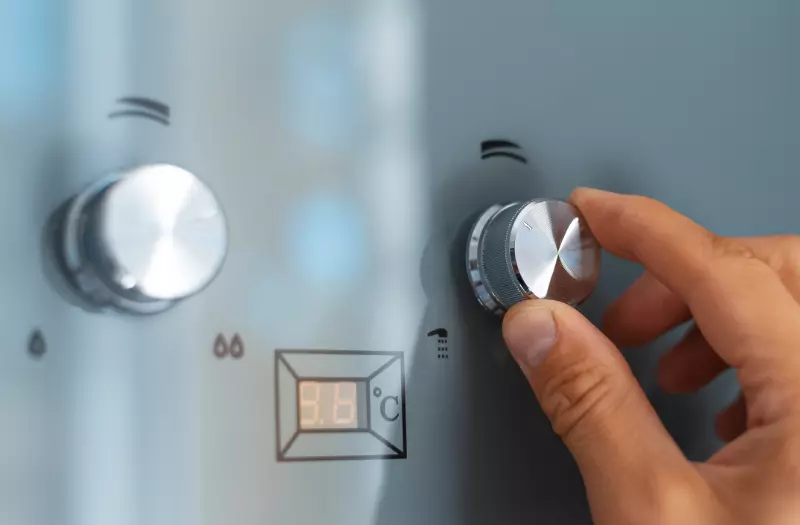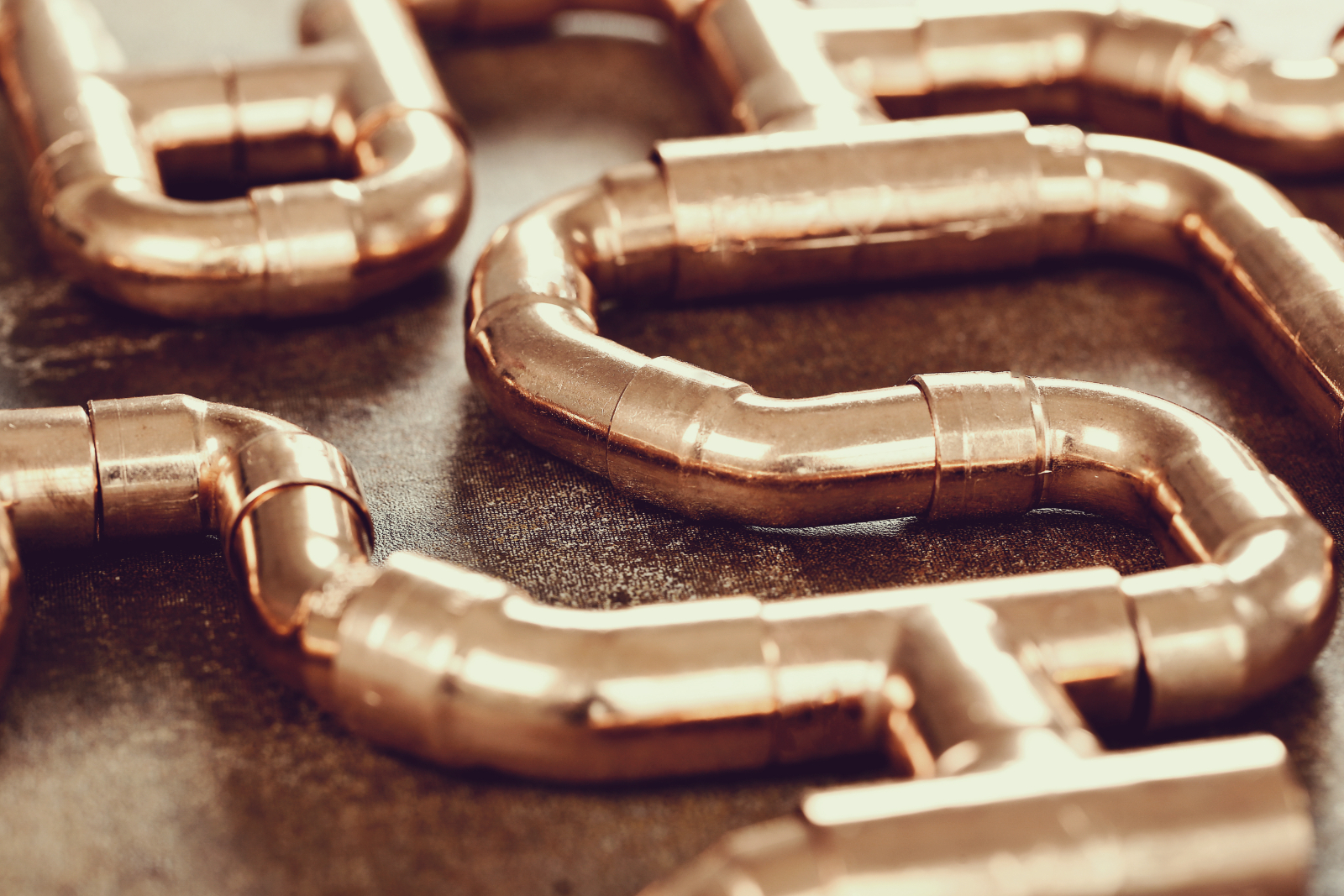How do I protect plumbing over winter? Ensure your plumbing's winter readiness with our expert tips! Learn how to protect your pipes from freezing, prevent costly damage, and maintain optimal water flow during the cold months.
Robert Cliff Ltd provide local plumbing services for Uppingham, Oakham, Stamford and Rutland. Get the insights you need to winterize your plumbing and safeguard your home's infrastructure.
How To Protect Your Pipes In Winter
Your pipes and faucets need to be protected from the cold. The water in exposed piping and garden taps can freeze when it is cold enough for snow and ice. The water expands as it freezes. The pressure inside the pipes can build, which harms the piping and results in leaks and bursts.
One of the finest things you can do to safeguard your pipes is to lag them. Pipe lagging is always available at any DIY store. If your pipes are located in an unheated area of your home, they may be exposed to freezing temperatures.
Additionally, pipes can break when they freeze, so it's important to take precautions to keep them from freezing in the first place. Any water pipes that are exposed to frigid temperatures should be protected. Although the lagging is self-sealing, it's a good idea to tape it down to prevent cold air from getting to the pipe.
The joints can easily be covered and neatly finished using insulation tape or strong fabric tape. This lessens the possibility of your pipes freezing as you're keeping them warm and comfy.
The Cost Of Burst Pipes
One of the most common kinds of house insurance claims in the UK is water damage. Even a tiny leak can do considerable damage to your home.
A water escape insurance claim can typically cost more than £3,000. Although it is not uncommon to have to pay more than £100,000 for repairs if a property has been flooded.

What Causes Frozen Pipes And Bursts?
Cold weather is one of the primary reasons for burst pipes. When it gets below freezing, water in exposed pipes expands when it freezes, which causes pressure to build up until the pipe bursts. Water flows out when the ice thaws.
Even though water leaks are more common in the winter, they can happen at any time of year. This can be due to corroding pipes, shoddy plumbing and fixture installation. Improperly plumbed-in appliances, and radiator and boiler leaks can also be causes.
The rise in pressure on the side of the pipe where the frozen part is located is the actual cause of burst frozen pipes. Since there is less room between the ice and the upstream, the pipe bursts. Since water expands when it freezes, many people believe that freezing is the reason pipes burst.
When water freezes, the molecules adopt a shape that takes up more space than the liquid form. But instead of expanding straight outward when water in a pipe freezes, it expands to the sides. Therefore, the pipe freeze isn't being caused directly by this.
Some frozen pipes do not explode. Thawing the ice poses a higher risk since it makes matters worse by escalating the pressure. Because of this, pipe bursts are more frequent near the end of winter as the ice begins to melt.
A home experiences a great amount of stress during the winter. Therefore you need to take extra care to protect it from the cold, especially your pipes. Insulating exposed pipes is one approach to keep pipes from freezing. This will stop the pipes from leaking heat to the surrounding air, which can cause them to freeze.

How To Stop Pipes From Freezing:
1. Repair Drips And Leaks
Winter is often accompanied by an increase in water leaks. Water pipe failures can be attributed to temperature variations and sporadic freezing. As water moves beneath the frozen ground so they are not only more dangerous to repair in but also more difficult to find.
The majority of pipes don't just explode. They begin in a small area. Eventually, the hole becomes larger and larger until it bursts. Cycles of freezing and thawing can quicken this by shifting the soil around the pipe. In the worst situation, unnoticed water migration to a sewer or creek might result in the formation of a sinkhole. When the top surface layer above is frozen, this is considerably more likely to happen.
2. Drain Your Outdoor Pipes
You should completely drain the water from pipelines that won't be used during Winter. You can do this by turning off the main water supply and letting the water flow until there is none left. Antifreeze products should be used with caution since they include chemicals that can harm the environment.
Pipes that are outside should be drained and kept in a warmer part of your house. If you have any taps in these places, close the inside valves. But leave the outside valves open so that the water can expand due to the absence of pressurisation.
3. Insulate Water Pipes

One of the best and most cost-effective solutions to prevent damage to any pipes is insulation. Most DIY stores have insulation, which can be wrapped around pipes that are at risk of bursting.
For thinner pipes, heat tape or wire works well. Insulating your pipes before winter arrives will help them from freezing and have the added benefit of lowering your energy costs.
4. Clear Out Your Drains
Cleaning your drains is the fastest method to guarantee that they will run efficiently throughout Winter. To prevent drains from freezing and becoming blocked, clear away any leaves and dirt. To prevent debris from clogging the pipes, install a drain guard made of non-freeze plastic.
5. Install Drain Protection
Drain protection is the best method for draining rainwater. However, in the event of a spill, materials entering a drain can have disastrous effects. Drain protection offers a crucial solution that can be implemented to stop the spread of pollutants and leaks.
All drains can be protected, which can come in the form of remote-controlled valves. Many square or rectangular drain configurations may be solved affordably and effectively using clay drain covers. Additionally offered are mechanical drain covers with an in-place deployment mechanism and magnetic drain covers.
There are several plastic, polyurethane, and neoprene drain covers available for square and rectangular standard drains as well as channel drain covers or aco drains that are resistant to a wide variety of chemicals and can be cleaned and reused.
Proactive measures for drains include adding valves and monitoring equipment to your drains. Drain valves and monitoring tools provide continuous drain monitoring from a straightforward dashboard. You can check on drains with several mobile applications by just clicking a button. Additionally, you can get alerts for problems and activate or deactivate valves.
6. Keep On Your Heating At A Low Level

Property owners turn off their heating while it is not in use. However, this is one of the most frequent causes of pipe damage throughout the winter. Frozen pipes are more likely to occur.
But they may be prevented by simply keeping your heater on at a low setting during the winter. This will enable warm air to circulate. The price of low-level heating is always lower than the cost of ruptured pipes.
7. Protect Your Property From Draughts
Draught-proofing is one of the most affordable solutions to conserve energy and money. By allowing fresh air to enter when it is needed, controlled ventilation helps to lower condensation and dampness.
Draughts, on the other hand, are out of control; they squander too much heat and allow in too much chilly air. In order to draught-proof your home, you should seal up any openings that permit warm air to escape and cold air to enter. In addition to keeping your home cosy and warm, conserving warm air means you'll spend less energy to heat it.
Tiny cracks in the stonework or spaces beneath doors can freeze any pipes in the house that are in danger. If there are any draughts, be sure to block them with insulation, whether it be wood or plastic, to lower the danger of frozen pipes. Unless you don't intend to use this item at all throughout the winter, you should avoid blocking any outdoor vents. Including ones that link to the heating system.
8. Arrange A Drain Inspection
An expert drain check is the simplest method to ensure that you are prepared for winter. You can determine whether your pipes have any damage by hiring experienced drain surveyors. You can also make sure that your pipes have been cleaned out to put them in the best possible condition.
Do you require plumbing or heating services in Leicestershire? We offer services to both domestic and commercial customers Uppingham, Oakham, Stamford, Peterborough and Rutland. Our charges are highly competitive and realistic. If you are experiencing problems with your central heating - Please contact us.

